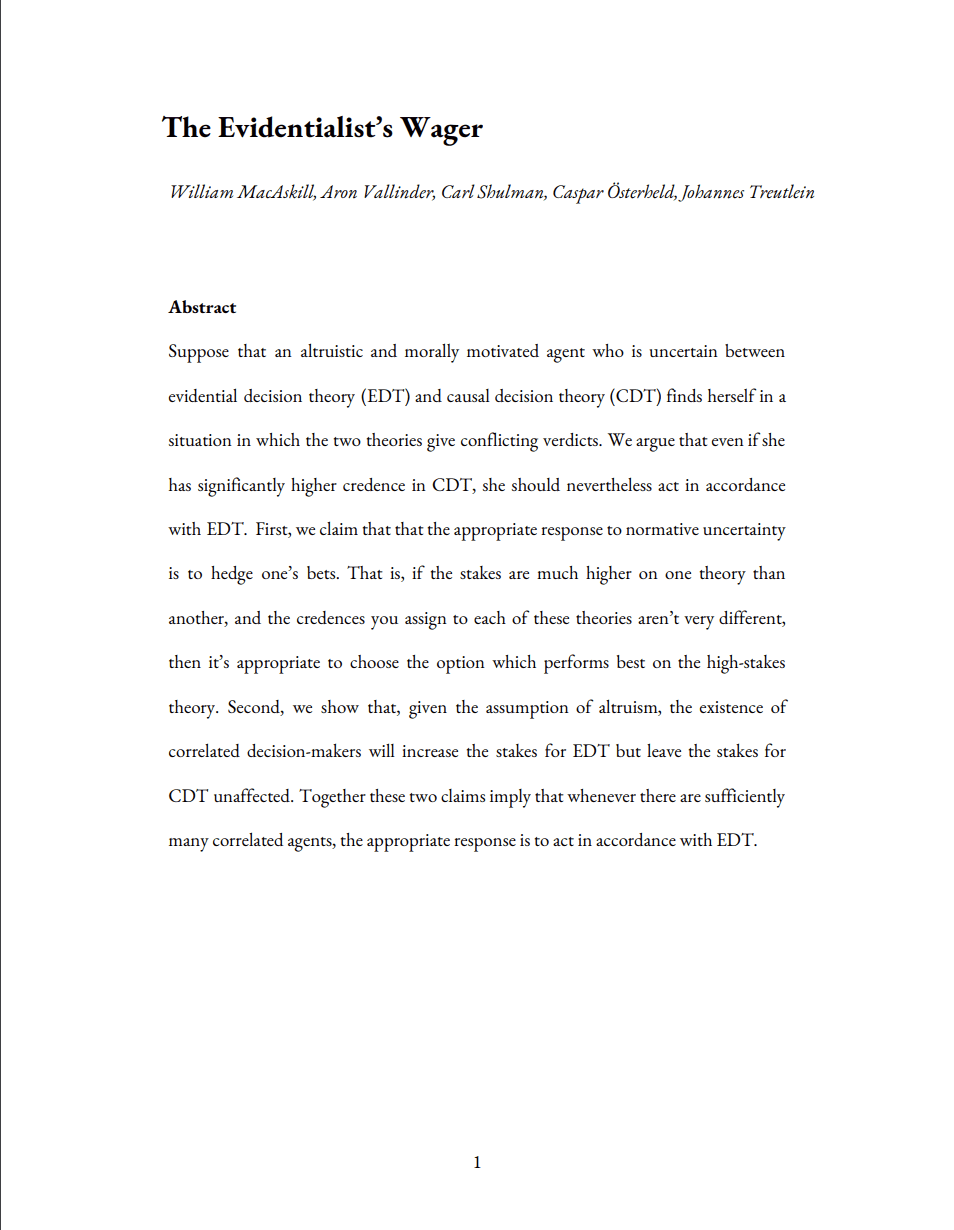The evidentialist’s wager
William MacAskill (Global Priorities Institute, Oxford University), Aron Vallinder (Forethought Foundation), Caspar Österheld (Duke University), Carl Shulman (Future of Humanity Institute, Oxford University), Johannes Treutlein (TU Berlin)
GPI Working Paper No. 12-2019
Suppose that an altruistic and morally motivated agent who is uncertain between evidential decision theory (EDT) and causal decision theory (CDT) finds herself in a situation in which the two theories give conflicting verdicts. We argue that even if she has significantly higher credence in CDT, she should nevertheless act in accordance with EDT. First, we claim that that the appropriate response to normative uncertainty is to hedge one’s bets. That is, if the stakes are much higher on one theory than another, and the credences you assign to each of these theories aren’t very different, then it’s appropriate to choose the option which performs best on the high-stakes theory. Second, we show that, given the assumption of altruism, the existence of correlated decision-makers will increase the stakes for EDT but leave the stakes for CDT unaffected. Together these two claims imply that whenever there are sufficiently many correlated agents, the appropriate response is to act in accordance with EDT.
Other working papers
Altruism in governance: Insights from randomized training – Sultan Mehmood, (New Economic School), Shaheen Naseer (Lahore School of Economics) and Daniel L. Chen (Toulouse School of Economics)
Randomizing different schools of thought in training altruism finds that training junior deputy ministers in the utility of empathy renders at least a 0.4 standard deviation increase in altruism. Treated ministers increased their perspective-taking: blood donations doubled, but only when blood banks requested their exact blood type. Perspective-taking in strategic dilemmas improved. Field measures such as orphanage visits and volunteering in impoverished schools also increased, as did their test scores in teamwork assessments…
In defence of fanaticism – Hayden Wilkinson (Australian National University)
Consider a decision between: 1) a certainty of a moderately good outcome, such as one additional life saved; 2) a lottery which probably gives a worse outcome, but has a tiny probability of a far better outcome (perhaps trillions of blissful lives created). Which is morally better? Expected value theory (with a plausible axiology) judges (2) as better, no matter how tiny its probability of success. But this seems fanatical. So we may be tempted to abandon expected value theory…
Calibration dilemmas in the ethics of distribution – Jacob M. Nebel (University of Southern California) and H. Orri Stefánsson (Stockholm University and Swedish Collegium for Advanced Study)
This paper presents a new kind of problem in the ethics of distribution. The problem takes the form of several “calibration dilemmas,” in which intuitively reasonable aversion to small-stakes inequalities requires leading theories of distribution to recommend intuitively unreasonable aversion to large-stakes inequalities—e.g., inequalities in which half the population would gain an arbitrarily large quantity of well-being or resources…

